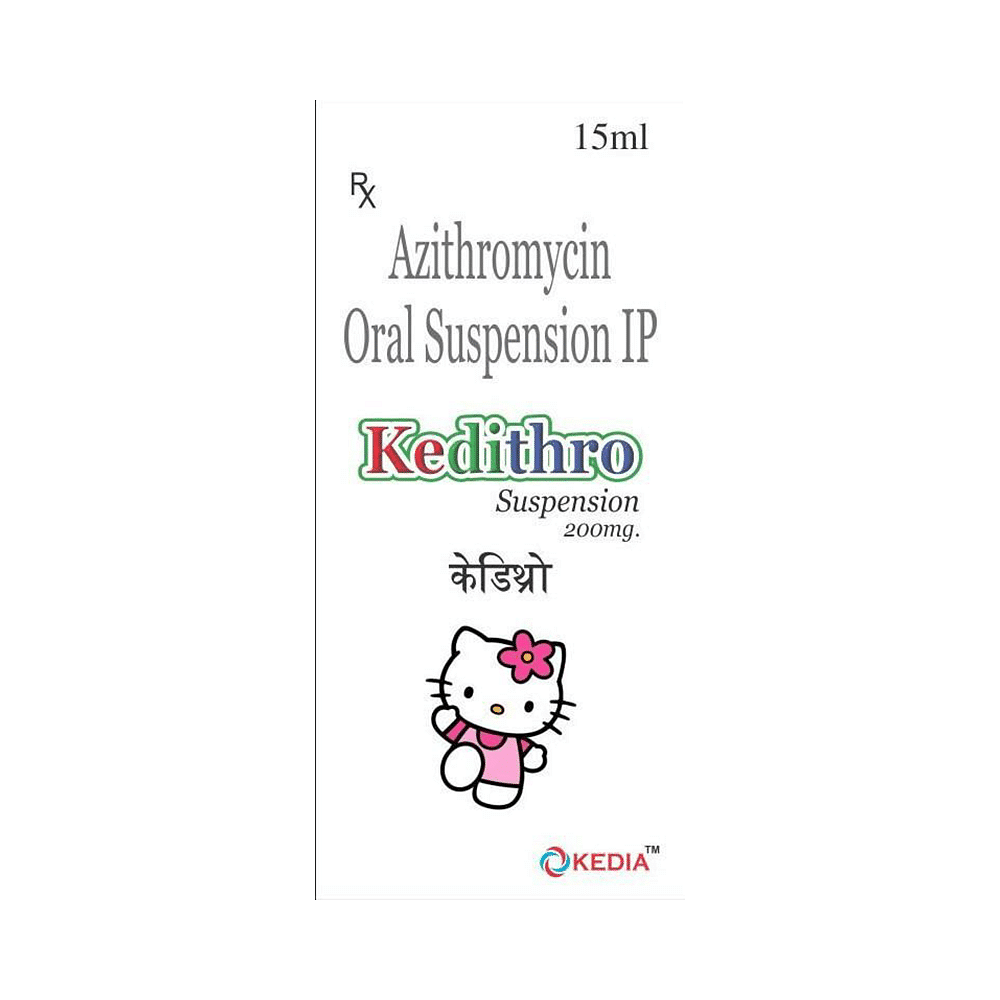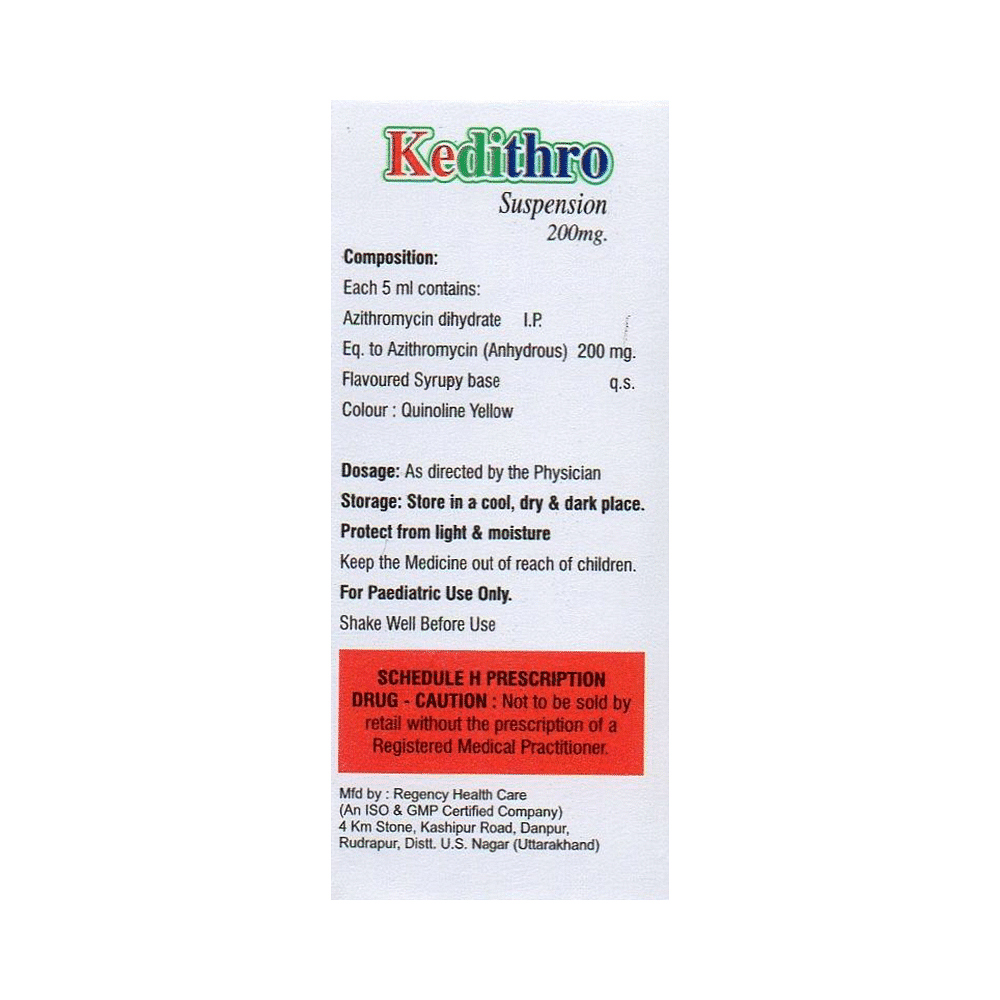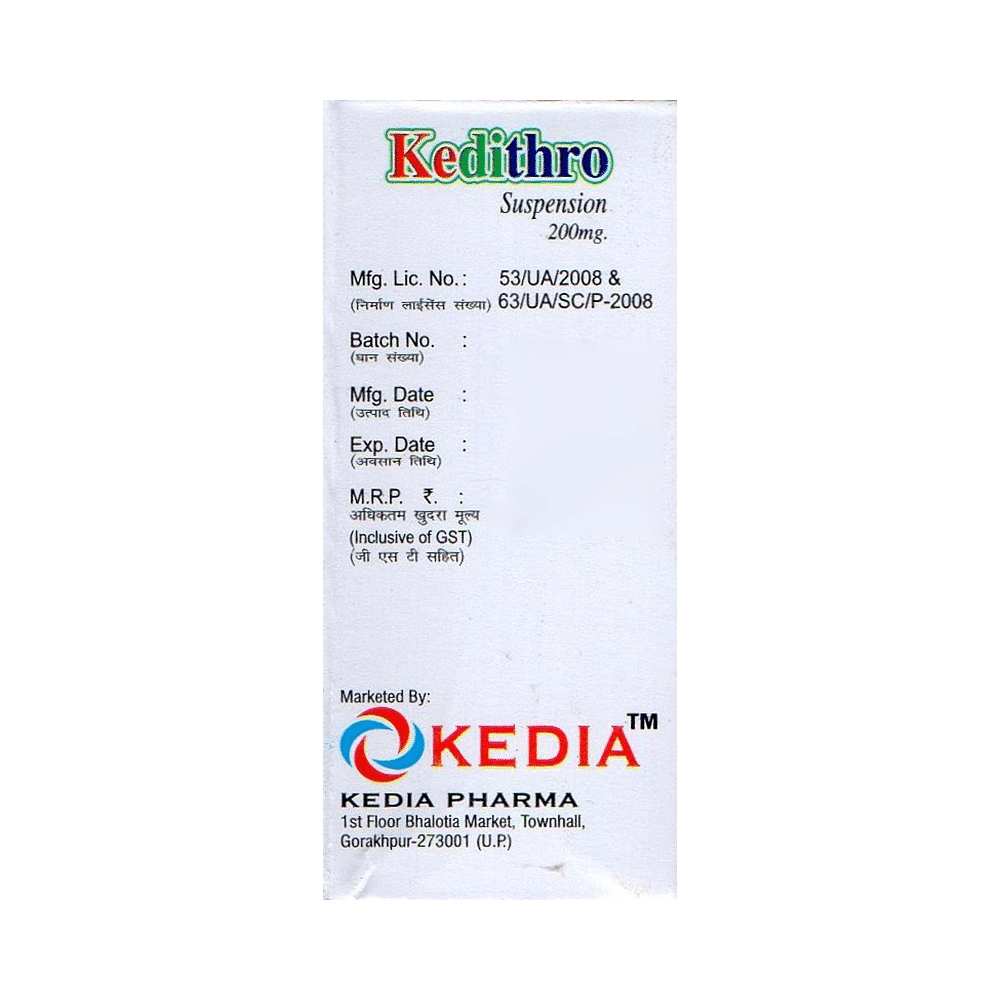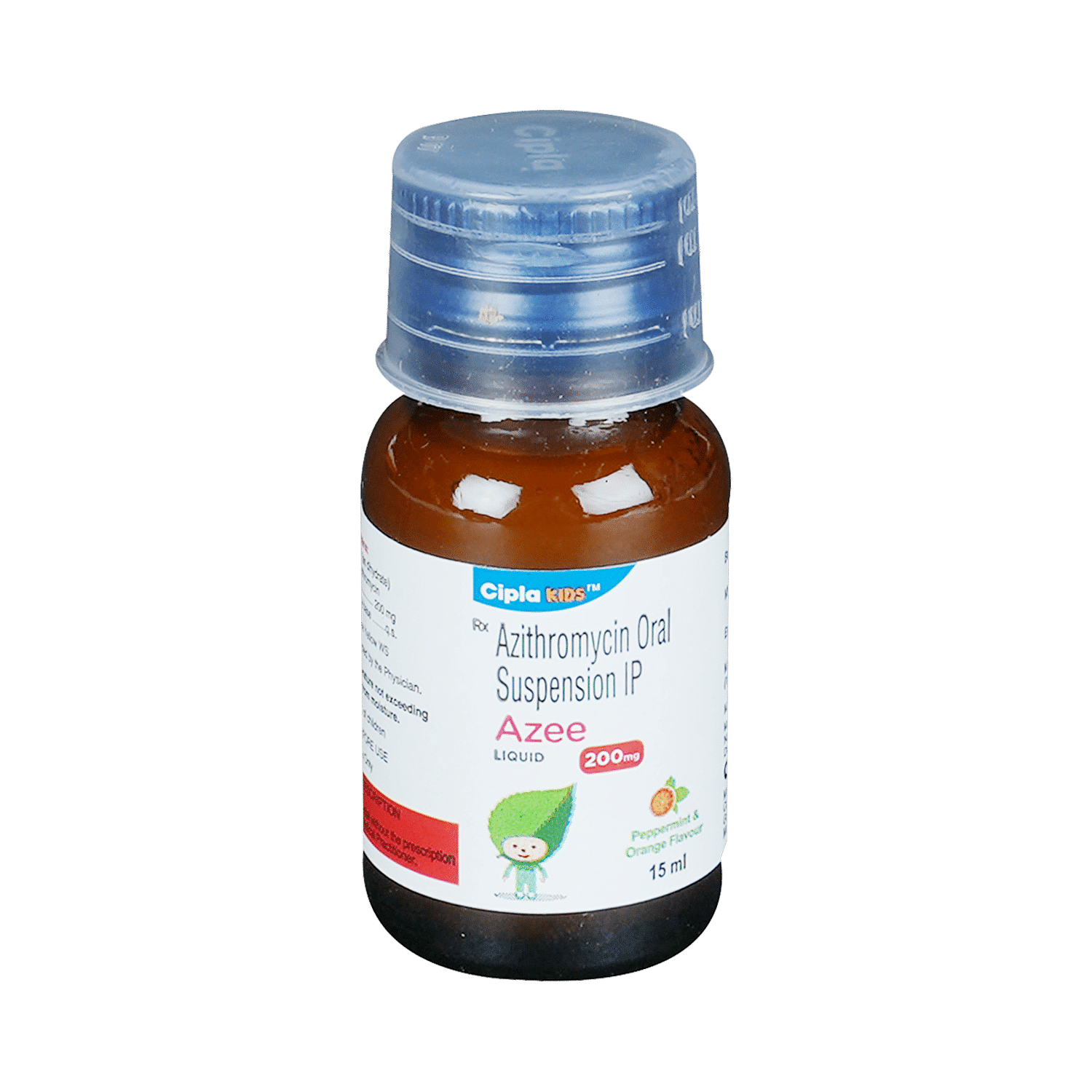


Kedithro Oral Suspension
Manufacturer
Kedia Pharma
Salt Composition
Azithromycin (200mg)
Key Information
Short Description
Kedithro Oral Suspension is an antibiotic medication used to treat a wide range of bacterial infections in children.
Dosage Form
Oral Suspension
Introduction
Kedithro Oral Suspension is an antibiotic medication commonly given to children for the treatment of bacterial infections targeting the ear, eyes, nose, throat, lungs, skin, and gastrointestinal tract. It is essential to complete the entire course of this medicine to avoid the bacteria multiplying again or causing another infection.
Directions for Use
Give Kedithro Oral Suspension with food to avoid an upset stomach. Encourage your child to drink plenty of water in case diarrhea develops as a side effect.
Safety Information
Side Effects
No common side effects listed.
Interacting Medicines
Astemizole Disopyramide Ebastine Lovastatin
How it works
Kedithro Oral Suspension is an antibiotic. It works by interfering with the synthesis of essential proteins required by bacteria to perform important functions. By doing so, it stops the infection-causing bacteria from growing further and prevents the infection from spreading.
Quick Tips
Your child must complete the entire course of this medicine. Give Kedithro Oral Suspension with food to avoid an upset stomach. Encourage your child to drink plenty of water in case diarrhea develops as a side effect. Kedithro Oral Suspension will not be effective for viral infections. Only give Kedithro Oral Suspension to your child for their current infection.
Related Medicines

Azee 200mg Liquid Peppermint & Orange

Azolox 200 Oral Suspension

Azithric 200mg Oral Suspension

Azilist 200mg Oral Suspension

Azoica Oral Suspension

Azimed 200mg Oral Suspension

Zizi XL 200mg Oral Suspension

Azibook 200mg Oral Suspension

Azitrim 200mg Oral Suspension

Abzee 200mg Dry Syrup
Frequently asked questions
What happens if I accidentally give too much of Kedithro Oral Suspension to my child?
Giving your child too much of Kedithro Oral Suspension is unlikely to cause harm. However, if you think they have taken an excess dose, contact their doctor immediately. Overdose can lead to unwanted side effects that may even worsen the condition.
Are there any serious side effects associated with using Kedithro Oral Suspension?
Possible serious side effects of this medicine include persistent vomiting, kidney damage, allergies, diarrhea, and severe gastrointestinal infections. Always consult your child's doctor if experiencing these situations.
Can I administer other medications alongside Kedithro Oral Suspension?
Kedithro Oral Suspension might interact with other medicines or substances. Tell your doctor about any other medications your child is taking before starting Kedithro Oral Suspension. It's also crucial to check with your child's doctor before administering any medication.
Can I get my child vaccinated while they are on treatment with Kedithro Oral Suspension?
Generally, antibiotics do not interfere with vaccine ingredients or cause a negative reaction in children who have recently been vaccinated. However, children taking antibiotics should avoid vaccination until their illness is recovered. When your child feels better, the vaccine can be administered.
What lab tests are necessary during long-term Kedithro Oral Suspension treatment?
The doctor may recommend regular kidney and liver function tests for monitoring your child's condition while on Kedithro Oral Suspension for a longer period.
Does Kedithro Oral Suspension impact digestion in children?
Children often experience sensitive stomachs and develop digestive discomfort when taking medications. Antibiotics can also affect the good bacteria in their gastrointestinal tract, potentially leading to increased infection risks. In cases of diarrhea while on Kedithro Oral Suspension, do not stop the medication course immediately. Instead, contact your child's doctor for further instructions.
Why is Kedithro Oral Suspension given for 3 days?
The duration of treatment depends on the type of infection being treated and the age of the patient. Kedithro Oral Suspension is not necessarily given for 3 days. Typically, a single dose of 500 mg is administered three times daily for bacterial infections. The treatment might also be given as a single dose of 1 gram or divided doses of 250 mg every day.
What should I avoid while taking Kedithro Oral Suspension?
When taking Kedithro Oral Suspension, it's recommended to avoid antacids as they might hinder its effectiveness. Additionally, it's advisable to protect your child from prolonged sun exposure or tanning beds due to the increased risk of sunburn.
Is Kedithro Oral Suspension a strong antibiotic?
Kedithro Oral Suspension is an effective antibiotic used for treating various bacterial infections. It stands out because of its longer half-life, which means it stays in the body longer, allowing for a single daily dose and shorter treatment duration compared to other antibiotics.
Can I get a yeast infection from taking Kedithro Oral Suspension?
Some individuals may develop thrush (a fungal or yeast infection) after taking Kedithro Oral Suspension. Antibiotics can kill off the good bacteria in your intestine that normally prevent this. If you experience symptoms like a sore throat, vaginal itching or discharge, a white patch in your mouth, or tongue, inform your doctor immediately.


